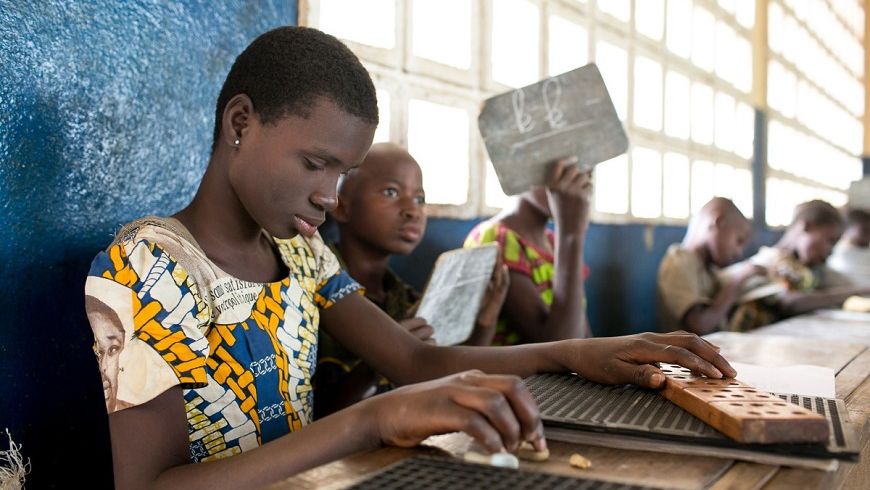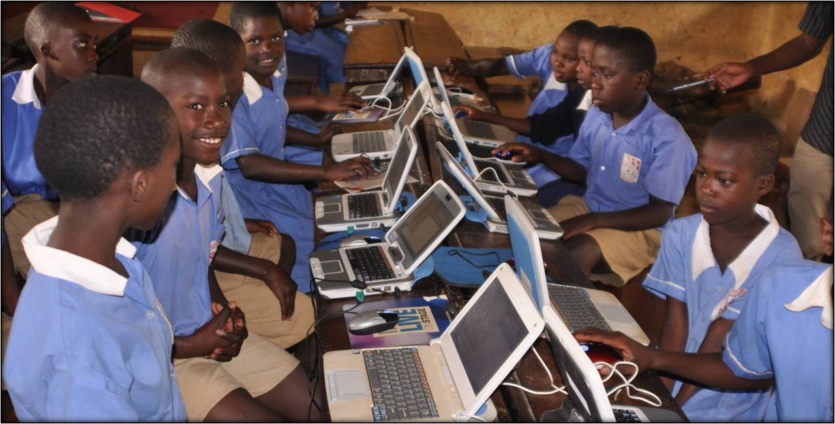MEST Africa in partnership with the Mastercard Foundation hosted the last edition of Edtech Monday for the year 2022, focusing on the challenges faced by learners with disabilities.
The show featured an expert panel including Rose Ofosuhemaa Darko, National Inclusive Education Coordinator at Special Education Division, GES; Derick Omari, CEO of Tech ERA; and Fared Ibrahim Gombilla, a Social Worker at Krowor Municipal Assembly and an individual living with visual impairment.
The show focused on the theme “EdTech as an enabler of education for learners living with disabilities” to raise awareness of the barriers children living with disabilities face when accessing education.
Some important issues raised and discussed include:
- The facilities currently available to support education of learners with disabilities?
- The problems learners living with disabilities face in accessing education?
- How does technology help learners with disability, overcome barriers to education?
Background of inclusive education in Ghana
Rose Ofosuhemaa Darko opened up the discussion by expressing her organization's passion for ensuring all children living with disabilities, gain quality education, without any barriers.

“We are poised to see to it that children with disabilities in our country are trained and educated so that they can live as independent human beings in adulthood,” Rose Darko said.
She went on to explain that the current state of Ghanaian schools is heavily segregated. She provided the below highlights in this regard.
- Currently, there are 28 special boarding schools across the country and 2 main schools for the visually impaired.
- There are only 4 integrated schools for the visually impaired.
- Thirteen (13) basic schools for the deaf and
- One (1) senior high school for the deaf only.
- One (1) integrated senior high school for the deaf, and
- Twelve (12) schools for intellectual and developmental disabilities.
She gave the assurance that this form of segregated schooling would soon phase out with the implementation of the government’s “well-developed policy” to ensure inclusive education.
Derick Omari, another panelist, highlighted that much more was needed to put an end to the educational barriers faced by children with disabilities.
“Yes, it’s great that they are piloting an inclusive education model, but currently blind students don’t learn science and math in Senior High School and University, which is severe and cannot be ignored. Besides that, many Muslim mothers of children with disability,struggle to cater to the needs of their children or to send them to school due to the struggle of inaccessible transport systems and mostly government schools complaining of the fact that they are not well-resourced with equipped teachers to be able to support the children,” Derrick further added.
Recounting his experience, Fared Ibrahim Gombilla shared that he had no access to any kind of educational technology until he got to junior high school, where he was introduced to the computer. However, he, along with other students, was only given a “cursory introduction to the use of computers.”
He further indicated that even if the inclusive policy is successfully implemented, “people on the ground don’t have the training to be able to teach persons with disabilities, and I’m not just focusing on the visual impact.”
He, therefore, underscored the need for more training and how technology can be made more easily accessible.
How technology can ensure inclusive education.
According to Rose, introducing technology such as computers and tablets to children with disability at an early stage can greatly help children with disability, particularly those who are unable to hold or write with a pen.
The use of computers and tablets will enable children with disability keep up with the pace of other students.
Derick Omari also noted that accessible technology such as talking computers can help children compute mathematical and scientific equations with ease. Derrick further noted that his organization “provides the development of braille geometry to help blind students in junior high school to be able to follow classroom learning,” and enable them to draw accurate geometric shapes.
Fareed shared his experience of how technology made inclusive education a lot easier for him. He indicated that with tech applications like Seeing Ai on Android devices and Keeble on iOS devices, he was able to read texts without any struggle, which made research easier and the ability to write his masters without difficulty.
“…One of my most exciting moments is to be able to get a hard copy text, let’s say a book and use my phone through a software called Seeing Ai or the Keeble to read hard copy text.”
About Edtech Mondays
EdTech Mondays is an initiative of the Mastercard Foundation’s Regional Centre for Innovative Teaching and Learning in ICT and part of the Foundation’s strategy to find solutions to Africa’s youth employment by closing the gap in access to quality education, and advancing the integration of technology in education policies and practices across Africa.
To realise this vision in Ghana, the Mastercard Foundation has partnered with MEST Africa, a pan-African technology institution to bring EdTech Monday, on the last Monday of every month.
Latest Stories
-
Ablakwa fires back at Alima Mahama, vows no tolerance for corruption in Embassy visa fraud scandal
15 minutes -
EOCO urges public patience, cites complex nature of financial crime investigations
39 minutes -
Toyoto Cup against Kaizer Chiefs a big opportunity for Asante Kotoko – Nana Apinkra
45 minutes -
Ghana risks U.S. visa sanctions over high student overstay rate – Ablakwa confirms
50 minutes -
Ghana Swimming Association inaugurates LOC for Africa Aquatics Zone 2 Championships
1 hour -
Bank of Ghana reverses dismissal of nearly 100 employees
1 hour -
A Highway of Tears: Ghana’s road safety crisis demands action now
2 hours -
Ras Mubarak: Open letter to Ghana’s Minister of Transport
2 hours -
UniMAC hosts Dr Bryan Acheampong for landmark AI and future of work lecture
2 hours -
The future of work belongs to humans who know how to work with machines – Dr Bryan Acheampong
2 hours -
Atwima Nwabiagya MP calls for developing Barekese and Owabi dams into tourist sites
3 hours -
Ghana–China ties deepen as Chief of Staff hosts high-level Chinese investor delegation
3 hours -
Minority demands PURC justify 2.45% tariff hike amid declining economic indicators
3 hours -
New book “The Essence of Ghana” to launch July 1, celebrating national identity through commemorative days
3 hours -
Goosie Tanoh presents 24-hour economy document to Speaker, policy kicks off on July 2
3 hours

